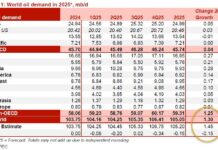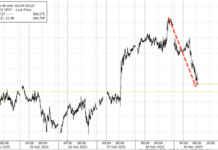Indian External Affairs Minister (EAM) Dr. Subrahmanyam Jaishankar just wrapped up his two-day visit in Iran, where he expanded connectivity and reaffirmed trust. The most important outcome was the signing of an automatically renewable ten-year deal for using his host’s Chabahar port, which is a crucial node in the North-South Transport Corridor (NSTC) between them, Azerbaijan, Russia, Afghanistan, and the Central Asian Republics. This agreement will lead to more Indian trade with all those countries.
The second aspect of his trip involved talks on the Red Sea Crisis, which expanded to the western part of the Indian Ocean last month after a mysterious drone attack against a ship near India’s coast. The US claimed that it came from Iran, which denied that, but it made sense for EAM Jaishankar to still take this up with the Islamic Republic during his visit due to the possibility that its Yemeni allies might have played a role. It’s unclear what he might have learned, but his upbeat mood suggests that trust was reaffirmed.
The Indian-Iranian Strategic Partnership is among the most important in the global systemic transition to multipolarity since it facilitates that South Asian state’s trade with the Eurasian Heartland. If those two didn’t have rock-solid ties built upon mutual trust, then all those hinterland countries would have much more limited economic options. The end result would be that they’d risk disproportionate dependence on China with all that entails for bifurcating the world into a Sino-US duopoly.
The resultant bi-multipolar system would restrict the exercise of all other countries’ sovereignty unlike how the acceleration of multipolar processes fueled by the Indian-Iranian Strategic Partnership expands their strategic opportunities by enabling India to serve as a crucial valve from such systemic pressures. Without reliable Indian economic access to the Eurasian Heartland via Iran, a Sino-led order would arise in parallel with a US-led one around the Eurasian Rimland, thus worsening New Cold War tensions.
The Islamic Republic has traditionally sought a third way between East and West, which during the Old Cold War was between the USSR and the US and is nowadays between China and the US for the most part, so there’s nothing surprising about its prioritization of India as a privileged balancing partner. Those two don’t always share the same policies as proven by Iran’s support of Hamas and India’s perceived Israeli-leaning neutrality towards the latest war, but they still responsibly manage their differences.
The Indian-Iranian Strategic Partnership is focused on keeping geo-economic integration on track so as to jointly speed up the global systemic transition all while calmly addressing whatever differences might arise such as those over Gaza and last month’s mysterious drone attack in the Indian Ocean. EAM Jaishankar’s trip successfully advanced those three interconnected goals, which raises the chances of a Russian-Indian-Iranian subgroup forming within BRICS during Russia’s chairmanship this year.
























